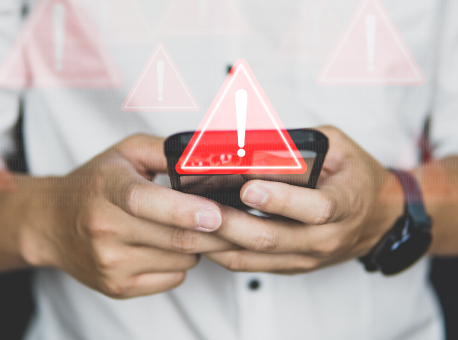Beware of Text Message Scams
Many of us have signed up for them: text alerts that a package delivery is on its way or a notification about suspicious bank activity.
However, these convenient communication streams also make you more vulnerable to scammers that hope you’ll tap a link or reply. Once you do, the scammer can request sensitive information or download malware that steals it automatically – potentially giving them access to your bank accounts or other personal details for identity theft.
Watch out for these common text scams:
Package Delivery: USPS warns that people are getting “package failed to deliver” texts with a link urging the individual to resolve the issue. Don’t click on it. Instead, go to the USPS website directly and manually enter your tracking code.
Bank Fraud Alerts: Sophisticated robo-texts are posing as banks and credit unions, alerting people about suspicious activity. Don’t engage. Instead, call RiverLand directly at 504.576.5800 during business hours or 800.547.0183 for after-hour cardholder assistance.
Student Loan Debt Forgiveness: Government entities will not text you regarding your student debt. Visit your loan account provider directly for messages and information.
REMEMBER: One common tool scammers use against us is our own emotions. Scammers will try to incite fear, excitement, panic, and even “new love” to bypass our logical thinking and get us to make decisions we may regret.
Be wary if:
- You were contacted unexpectedly.
- The interaction heightens your emotions.
- The message invokes a sense of urgency or high stakes.
If you are ever unsure about whether a message you receive is a scam, get a third party involved like a trusted relative, friend, RiverLand, or the business you believe the scammer is impersonating. By taking a moment to stop, think, and involve an objective outsider, you can avoid becoming a victim of a scam.
Spotted a scam? Report it:
- Copy the message and forward it to 7726 (SPAM). This will help your wireless provider block similar messages in the future, according to the Federal Trade Commission.
- Visit: ReportFraud.ftc.gov
Take advantage of The AARP Fraud Watch Network™, a free resource to you. Visit: AARP.org/FraudWatchNetwork
We're here to enhance your financial well-being.
If you have a financial topic you'd like us to explore, fill out our .




